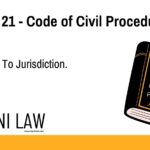The Madras High Court ruled that phone tapping without a clear public emergency or public safety concern violates the right to privacy under Article 21 of the Constitution. Justice Anand Venkatesh held that covert surveillance to detect crime is not allowed under Section 5(2) of the Indian Telegraph Act. The court was hearing a plea by P. Kishore, whose phone was tapped in a corruption probe. The Centre had justified the action as necessary for public safety. However, the court said that such tapping must meet strict legal conditions. It must be based on either a visible public emergency or public safety concern, and be reviewed under Rule 419-A of the Telegraph Rules. In this case, the tapping was done secretly and the material was not placed before the Review Committee.
The court said this violated legal procedures and rejected the Centre’s argument to expand the scope of the law. It emphasized that only Parliament can change legal limits, not the court. The tapping violated Section 5(2) and Rule 419-A. Hence, the court quashed the order and barred the use of the tapped material.








